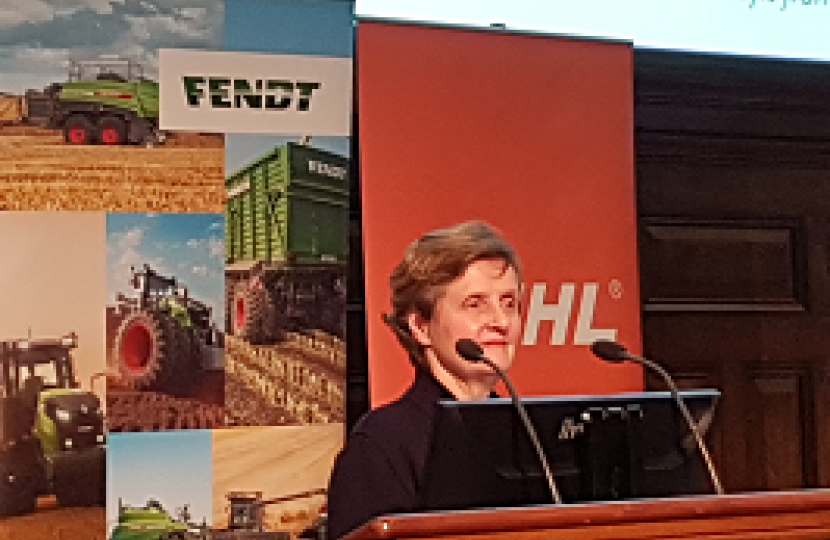
Britain will remain a magnet for cutting edge research in agricultural techniques, a leading MEP told farming technologists this week.
Anthea McIntyre MEP also predicted that the UK government would put science at the forefront of future environment and agriculture policies.
Miss McIntyre, Conservative agriculture spokesman in Brussels, was addressing the Association of Agricultural Engineers in London on Tuesday.
She said that the recent government publication A Green Future had highlighted how scientific knowledge would be at the heart of any future regulation alongside a focus on Integrated Pest Management for a more holistic approach.
Miss McIntyre outlined her series of reports on harnessing emerging technology to improve productivity and environmental protection, and said: "The UK is a global leader in science and innovation - these developments in precision farming are right on our doorstep.
"My region the West Midlands recently grew the world’s first entire crop using nothing but robot tractors and drones.
"This Hands Free Hectare, led by Harper Adams University and Precision Decisions, successfully grew a crop which was seeded, sprayed, monitored and harvested using off-the-shelf technology and open source software. This is the future for farming.
"We are in the early days of the big data and agri-tech revolution. I’m hoping that with the right regulation and political will, the big winners of this revolution will be the producers, the environment, small farmers and consumers."
Miss McIntyre said a promising sign for the UK in maintaining its status as a world leader in technology came last week when it was awarded more research grants than any other country, by the European Research Council in its 2018 Advanced Grants. These prestigious EU grants, she said, were worth a total of €653m.
“The results are a remarkable success for Britain, which comes out well ahead of other countries, both in the nationality of the successful scientists and in the location of the university or research centre where they will work.”
The UK took 66 of the 269 awards, followed by Germany with 42 and France with 34.
She said: “It is very reassuring, that despite Brexit, we clearly remain a favourite destination for top European research funds.
“The figures demonstrate the strength of UK science. When funds are allocated purely on excellence, as European Research Council Advanced Grants are, Britain emerges as Europe’s top scientific venue.
"Both the UK and EU have a huge stake in maintaining a very close relationship in research and innovation after Brexit. I hope we will continue with the same level of participation in European research programmes, as we currently have with Horizon 2020.”
Miss McIntyre also referred to the European Parliament’s new special committee on pesticides, set up in the wake of the reauthorisation of glyphosate, the widely used weedkiller.
She said: “Glyphosate has been proved to be perfectly safe and is so important in progressive farming techniques. Decisions need to be based on scientific evidence not political bias."

